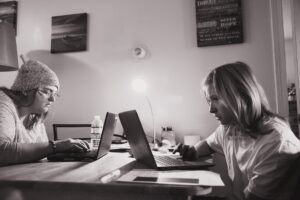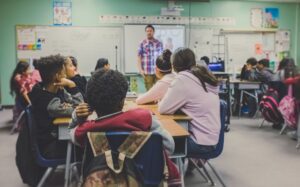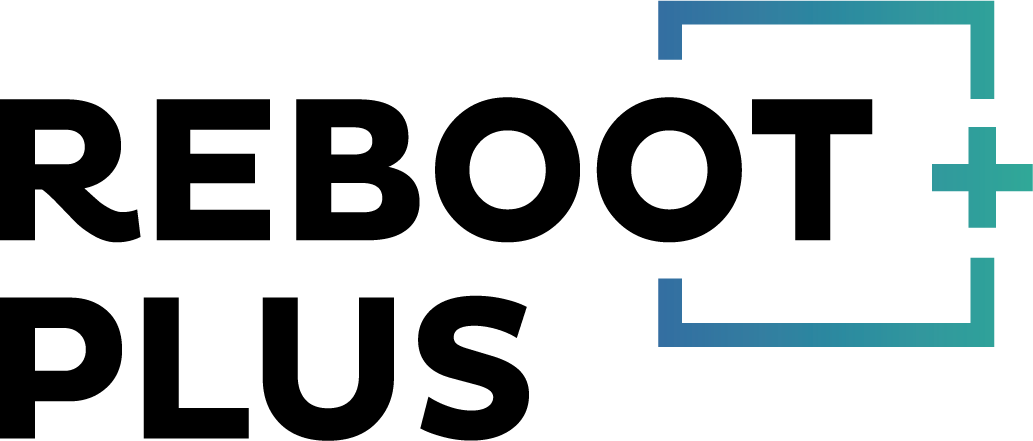Carla Hotel, MA, MEd (Counselling Psychology), and Danielle Quigley, Ph.D. of Douglas College in New Westminster, B.C., are researchers of the Reboot Plus Program. Offered in partnership through Douglas College Training Groupand PEERs Employment & Education Resources with the Burnaby Board of Trade, this innovative program aims to re-engage at-risk youth in education and career development by providing them training and exposure to both post-secondary education and to the world of work. The program is funded as a labour market research initiative by the Future Skills Centre. Their findings will inform government, labour and educational institutes on broader adoption of novel approaches to training and skills development.
The Challenge
“There is no one reason, or set of reasons, that people become disengaged from their high school. The reasons are many and the complexity of each situation unique. There is no one fix. We need to try several things to get students to come back and create a vision for their future. We need to help students to engage with high school.
The Proposal
The program targets students at risk of not graduating from high school in the Lower Mainland. To recruit these students, the program reaches out to high school teachers who had relationships with these students. The intention of the program is to reengage youth with the idea of pursuing what they would like to do for work down the road to connect them back to their education. As researchers, we are evaluating whether the program is doing just that.
Select students entering the program will be provided training in career development, resume and job search portfolio development, and networking, presentation skills and practice. Once they have engaged in these requirements, students schedule 4 – 7 informational interviews with professionals in their chosen areas of interest. In doing so, students should realize the start-up story is a universal one, and there is no linear path to a career outcome. Students also spend time at Douglas College to offer a glimpse into life beyond the walls of a high school; this gives them a chance to envision a world beyond their experiences.
Immediate Goals
The short-term goal is that students complete the program. While they’re working through the program, the program aims to provide a positive experience that reengages them with their path. The project aspires to infuse hope, confidence, and self-assuredness, and our research is using measures to document change in these, and other variables, like self-efficacy, career knowledge, and communication. Students should leave the program with aspirations for a future that calls to them. We want them to say, “I know what I want to do, and now I know how to get there.”
Medium Measurements
 We are currently measuring the results as we go. One of the ways that we collect data is by surveying the students twice during this project, once at the beginning of the cycle, and again at the end. We are measuring changes in how they can complete certain tasks, their confidence and competencies, their job-search clarity, and if their abilities to communicate with others have changed over time. We are seeking a sense as to sense as to whether they are engaged in the job search process.
We are currently measuring the results as we go. One of the ways that we collect data is by surveying the students twice during this project, once at the beginning of the cycle, and again at the end. We are measuring changes in how they can complete certain tasks, their confidence and competencies, their job-search clarity, and if their abilities to communicate with others have changed over time. We are seeking a sense as to sense as to whether they are engaged in the job search process.
In addition to student surveys, we are connecting with professionals who have participated in the informational interviews with students, and the team leading students through the program. Through their feedback, we recommend modifications as required.
Long Term Aspirations
We hope to provide youth access to their possibilities that exist for them in the world they are living in. Our research leads us to pose questions that ask what the scalability of this program might look like. How might we port this program to another community, province, or region? We are a year away from concluding this research, but we are excited by the results that we are seeing. This program can apply to many different parts of the engine, from Government organizations through to education.
Our Findings So Far
 The students we have interviewed have a lot of hope. They have clarity. They know they can do it. The teachers involved in the program have made these students see past their current barriers to glimpse their potential. The employers have signed up for repeated informational interviews, finding the experience both rich and rewarding.
The students we have interviewed have a lot of hope. They have clarity. They know they can do it. The teachers involved in the program have made these students see past their current barriers to glimpse their potential. The employers have signed up for repeated informational interviews, finding the experience both rich and rewarding.
Every time we start with a new cohort, there is an excitement about the possibilities. This is a hopeful model. For whatever reason, students coming into the program have not been experiencing that. The data, thus far, has been very inspirational. The community we have created is diverse, it is different, it is inclusive, and we want to ensure the project continues to have this effect.”
